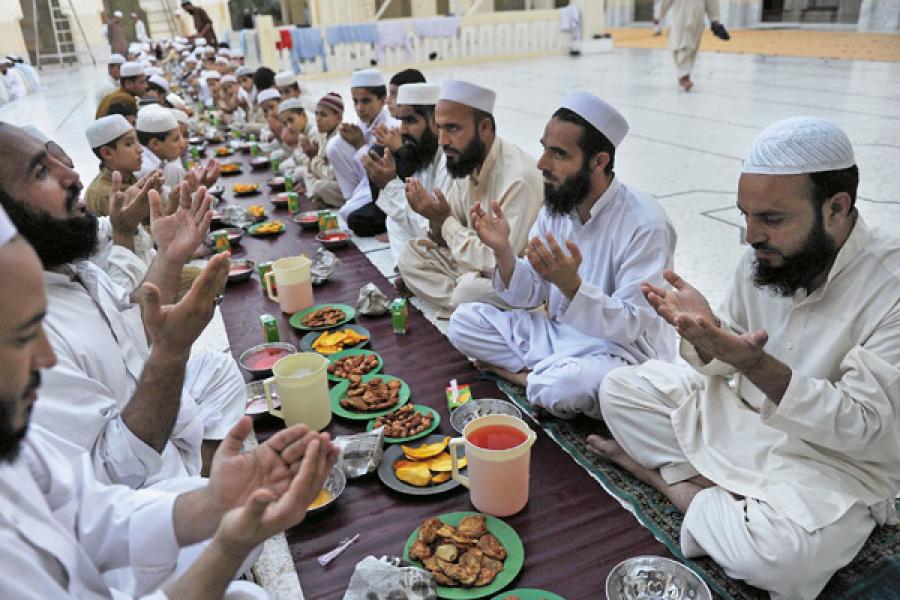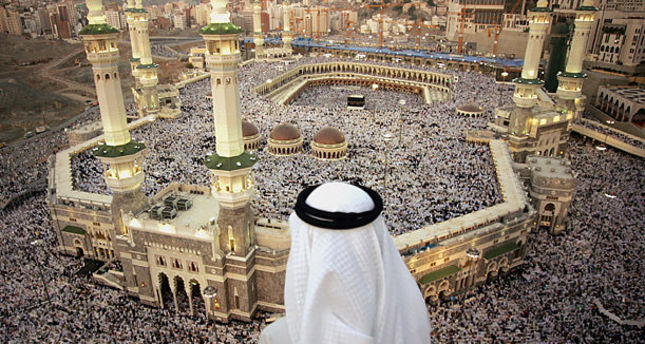The 5 Pillars of Islam
(Submission to Allah)
The Five Pillars consist of:

La ilaaha illa-llaah Muhammadur-Rasool ullah
“There is no true God but Allah Subhanahu wa ta’ala (High and Exalted is He) and Mohammad Salal-layhu alayhi wasalam (Peace be upon him), is His last Messenger”.
Salaat (Prayer)
Perform the 5 mandatory prayers a day (Al-Fajr, Dhuhr, Asr, Mughrib & Isha). Allah does not need one's prayer because He is free of all needs. Prayer is for our immeasurable benefit, and the blessings are beyond all imagination.
Zakaat (Purification)

Obligatory giving to the poor. A very important pillar of Islam, it draws Allah’s blessings and strengthens the relationship between the rich and the poor.
Sawm (Fasting)

Fast in the month of Ramadhan. Fasting is abstaining from eating, drinking, intimate male / female contact and smoking from sunrise till sunset in this Holy Month.
Hajj (Pilgrimage)

One God - Allah (Subhanahu wa ta’ala), Supreme and Eternal, Infinite and AllMighty, Merciful and Compassionate, Creator and Provider.
Allah’s Angels - purely spiritual and splendid beings ordered by Allah.
Allah’s Revealed Books - a Muslim believes in all scriptures and revelations of God, as they were complete and in their original forms.
His Messengers - all Messengers were mortals, human beings, endowed with Divine revelations and appointed by God to teach mankind.
The Last Day of Resurrection - everything we do, say, make, intend and think are accounted for and kept in perfect records, they are brought up on this Day.
Al-Qadr - Allah has ordained everything. One must not believe that anything but Allah controls the present or future (luck charms, horoscopes,one’s own actions).
The Pillar of Salaat
The Second Pillar of Islam
Prophet Mohammad (Peace be upon him) said “Pray as you have seen me praying”
The conditions of Salaat Acceptance of Islamic Faith - The one who believes in Allah is required to perform Salaat.
Niyyat - Intention in one’s heart to perform a particular prayer.
Cleanliness - This includes cleanliness of the worn clothes, the place of prayer and the body.
Purification - Performing Wudhu (ablution) before undertaking Salaat.
Concealing the body - A man’s body must be covered between the navel and the knees and also the shoulders. Women must be clothed fully with opaque covering, revealing no shape of figure or hair at all. ™
Facing the Qiblah - One must face the sacred Mosque of Makkah to pray. If the direction is unknown, it can be guessed and the prayer will be accepted, insh’Allah (“if Allah wills it so”).
Observed times of performing Salaat - Prayers are to be observed at the prescribed times.
Neglected Prayers - Salaat that is forgotten must be done even when late (“Kadaah”), the longer one leaves it the more the reward of the prayer diminishes.
Invalidation of Salaat (that requires repeating the entire prayer)
™
Talking deliberately, or to do any acts outside the movements of prayer. ™
Laughing, eating & drinking (residual food in the mouth). ™
To significantly shift direction from the Ka’bah during the prayer.
Please Note: situations such praying on a train or plane mean involuntary shifting of direction will not invalidate prayer.
Performing Wudu For Your Daily Prayers
1.Niyyat - Make intention to perform Wudhu in one’s mind for the purpose of worshipping Allah Subhanahu wa ta’ala.
2.Bismillah - Invoking Allah at the start of Wudhu by saying Bismillah (in the Name of Allah)
3.Hands - Wash the hands 3 times up to the wrists with water, allowing water to run between the fingers.
4.Mouth - Rinsing the mouth with water three times. The mouth must be empty of food.
5.Nose - Cleaning one’s nostrils by sniffing water in then out 3 times.
6.Face - Clean the face 3 times from the top of the forehead down to the chin and from ear to ear.
7.Arms - Wash the arms three times, from the elbows. Right arm first, then left.
8.Head - Moisten the hands and pass them over the head from the forehead to the back of the neck (over the head), and from there back to the forehead. Never wet the neck. Then wipe the earlobes with the fore-fingers cleaning the inside of the ears and the thumbs cleaning the external side.
9.Feet - Finally wash both feet beginning with the right first, up to the ankles. The feet should be rubbed whilst washed and water must run between the toes. No part of the foot remains dry.
Clean water which is permissible for Wudhu™
Natural water such as rain or lake water.
A large quantity of water even mixed with impure substances but has not changed in it’s taste, colour or odour.
Matters that invalidate one’s acquired Wudhu
Passing of excrement, wind or urine.
Sleep of any sort.
Touching of sexual organs even unintentionally, whether naked or clothed.
Not sweat or mud (contrary to rumour).
Impurities are Excrement. Urine. Blood shed. Pig & dead animal.



No comments:
Post a Comment